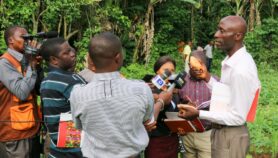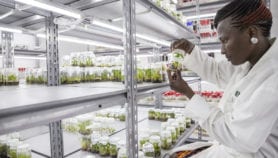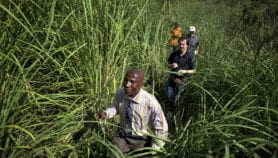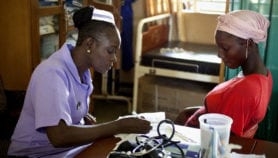By: Esther Nakkazi
Send to a friend
The details you provide on this page will not be used to send unsolicited email, and will not be sold to a 3rd party. See privacy policy.
[KAMPALA] People’s resilience to climate change impacts in Africa could be strengthened by leveraging knowledge and creativity across networks, researchers working on a new project say.
Uganda-based Makerere University launched the ResilientAfrica Network (RAN) Innovation Laboratory last month (13 August) to help tackle climate change challenges that confront the continent.
George Mondo Kagonyera, chancellor of Makerere University, tells SciDev.Net, “Let us not wait for other people to develop solutions to [tackle] our own challenges. We know and live with these challenges, so we are the best developers for solutions to address them”.
“[The laboratories] will be RAN’s centres for tapping into the wide resource of students, faculty and the community to incubate, test, and scale [up] innovations that target capabilities.”
Roy William Mayega, The ResilientAfrica Network (RAN)
RAN is one of the seven development laboratories within the five-year, US$137 million Higher Education Solutions Network (HESN) funded by the US Agency for International Development, says Ticora V. Jones, division chief of HESN, adding that the project seeks to communicate innovations to the community to broadly integrate them and improve their livelihoods.
RAN targets 20 universities in 16 African countries, including Democratic Republic of Congo, Ethiopia, Malawi, Mali, Senegal, Somalia, Rwanda and Tanzania, noting related laboratories established in Ethiopia, Ghana and South Africa, says Roy William Mayega, the network’s deputy chief of party.
“[The laboratories] will be RAN’s centres for tapping into the wide resource of students, faculty and the community to incubate, test, and scale [up] innovations that target capabilities and reduce vulnerabilities identified by a scientific, data-driven and evidence-based resilience framework for Africa,” Mayega explains.
William Bazeyo, the dean of Makerere University School of Public Health, and the RAN chief of party, says the laboratory is focusing on climate resilience by partnering Gulu University in Uganda, National University of Rwanda, University of Kinshasa in the Democratic Republic of Congo and Muhimbili University of Health and Allied Sciences in Tanzania.
A call for innovations under the first Resilience Innovation Challenge 4 Adverse Climate Effects was made during the launch. According to Mayega, up to eight grants with each between US$15,000 and US$250,000 are available to support innovative approaches and technologies to strengthen resilience and address adverse climate effects.
John Ddumba-Ssentamu, vice-chancellor of Makerere University, says the universities will aim at ensuring that more innovators, students and faculties engage in relevant research and innovation activities to respond to community challenges.
Victoria Sekitoleko, a former minister of agriculture in Uganda and former representative for the UN Food and Agriculture Organization in China tells SciDev.Net: “[The network] is brilliant because it shows that implementers of the project shall not have preconceived ideas on how to [tackle climate change] since they will involve the community.”
This article has been produced by SciDev.Net's Sub-Saharan Africa desk.














